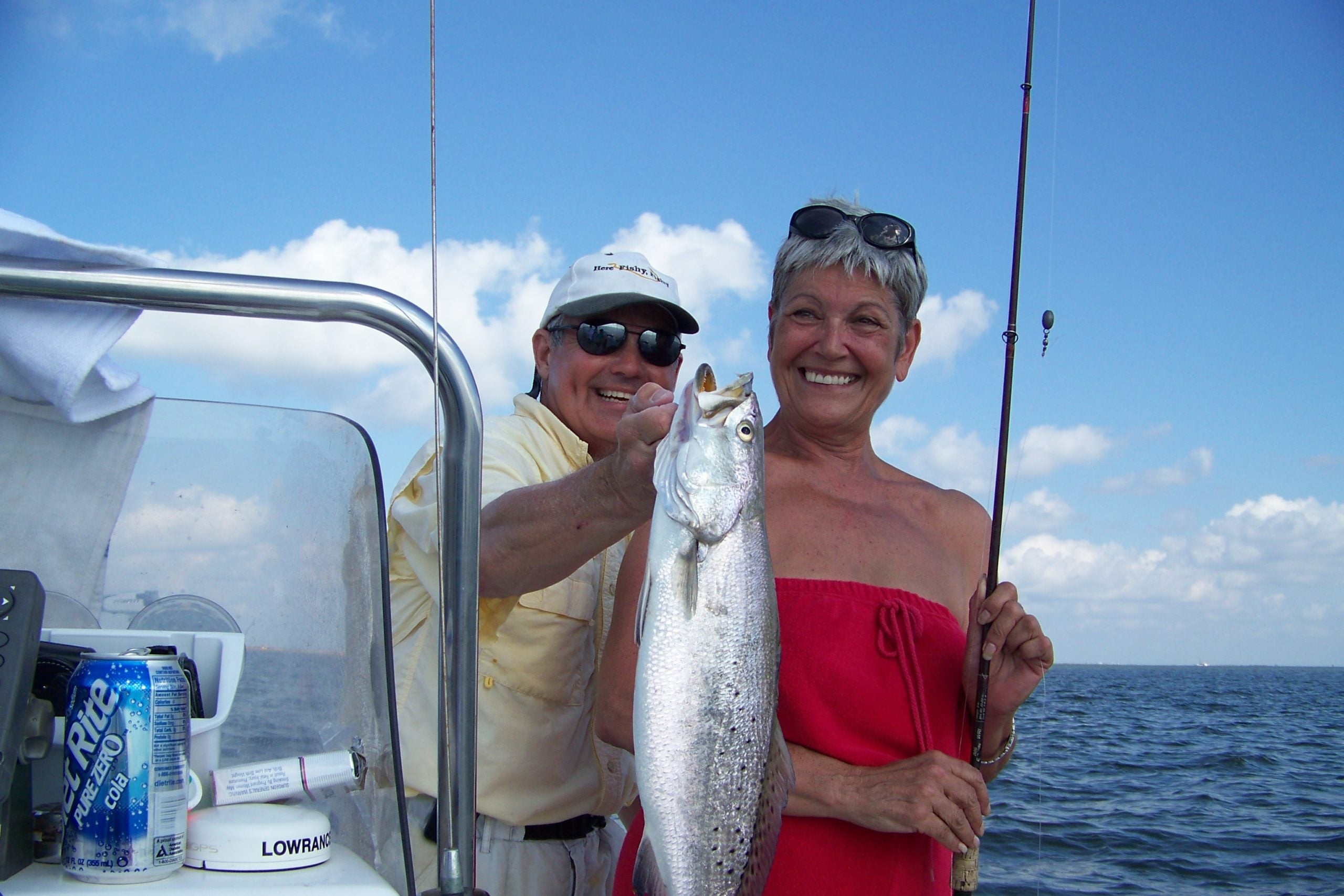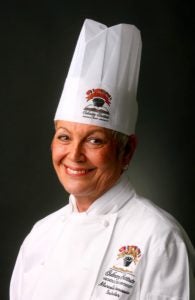
Papa’s Bouillabaisse with Rouille
- Total Time: 1hr 30 min
Notes
The Louisiana coast is the life blood of our state. It has been a source for a way of life that has been envied by many. Our fishermen have provided us (and indeed the world) with oysters, crabs, shrimp and fish with which to prepare our local dishes. Sportsmen have enjoyed the environment not only for the available seafood, but also for the hunting season for ducks and geese. There is no doubt that our Acadian and Creole cuisines are known worldwide.
ABOUT THE DISH

My father was an avid sportsman and this was one of his favorite seafood dishes to prepare when we spent time at our camp on Vermilion Bay. This story about bouillabaisse came from Carmen Bulliard Montegut, a wonderful cook from St. Martinville who published a cookbook featuring favorite dishes from her hometown that was once called “le petit Paris de L’Amerique.”
The first bouillabaisse was made in Marseilles, France and the old Creole tradition runs that it was the discovery of two sailor fishermen, who were disputing as they sat in a schooner as to the proper way of cooking fish. One succeeded in making a dish that would have gladdened the heart of any old French or Creole Bon Vivant. The other fisherman failed. The successful one enthusiastically offered to teach his friend, and as the latter was following the directions implicitly and the finishing touches were being added to the dish, the teacher seeing that the important crucial moment had come, cried out, bringing down his hand emphatically, “Et quand ca commence a bouillir-baisse” (and when it begins to boil, lower the flame). Hence the name bouillabaisse was given the dish from that moment.
RECIPE
Ingredients
Ingredients
-
Papa’s Bouillabaisse:
- 2 1/2 lb. fish fillets, like snapper, redfish, or speckled trout
Salt and cayenne
3 cups coarsely chopped yellow onions
2 cups coarsely chopped green bell peppers
2 ribs celery, coarsely chopped
3 cloves garlic, minced
1 stick butter
2 (1 lb.) cans whole tomatoes, mashed with their can juices
1 lb. medium-size shrimp, peeled and deveined (optional)
1 lb. lump crabmeat, picked over for shells and cartilage (optional)
4 bay leaves
1/3 cup dry white wine
8 slices French bread, toasted
Rouille (recipe follows)
Rouille:
2 Tbsp. minced garlic
1 tsp. fresh lemon juice
3/4 cup mayonnaise
1 tsp. chopped fresh parsley leaves
Salt and black pepper to taste
Instructions
-
Papa’s Bouillabaisse:
- Season the fillets generously with salt and cayenne.
- Combine the onions, bell peppers, celery and garlic in a bowl and season with salt and cayenne.
- Heat the butter in a deep, heavy pot over medium heat.
- Put two to three fillets of fish in the bottom of the pot in the butter.
- Then add one-third of the vegetable mixture, then one-third of the tomatoes.
- Continue making the layers until all the ingredients are used.
- Put the shrimp, crabmeat and bay leaves over the final layer.
- Pour in the wine, cover and reduce the heat to medium-low.
- Simmer for 1 hour (do not remove the lid).
- To serve, put a slice of French bread in the bottom of a soup bowl, then ladle the soup over it and pass the rouille with toasted French bread.
Rouille:
- Combine all of the ingredients in a bowl and whisk to blend.

“The Louisiana coast is the life blood of our state. It has been a source for a way of life that has been envied by many. Our fishermen have provided us (and indeed the world) with oysters, crabs, shrimp and fish with which to prepare our local dishes. Sportsmen have enjoyed the environment not only for the available seafood, but also for the hunting season for ducks and geese. There is no doubt that our Acadian and Creole cuisines are known worldwide.”
– Marcelle Bienvenu
Got a recipe to share?
Submit yours now!
